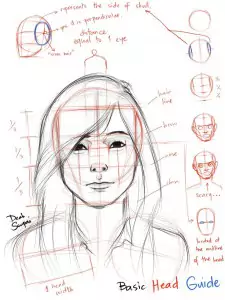

✅ AI Essay Writer ✅ AI Detector ✅ Plagchecker ✅ Paraphraser
✅ Summarizer ✅ Citation Generator
In the previous blog post, I gave you some hints on how to create a literary character who wouldn’t look like a crippled cardboard puppet. Today, I am going to teach you another trick that will help you to make your characters more vivid and real.
Personally, I don’t like to describe my characters in a way like, “He was a melancholic reflecting person, pretty attractive to women, but not using this power at full capacity.” This leaves the audience no place for imagination. What I do is try to convey my character’s inner world through their actions, likes and dislikes, and so on (like Haruki Murakami, for example). Take a look at the following sentences and see if it tells you something about a character:
e.g. “John stood near the window, looking at the gray rain outside. Dim morning light barely lit John’s tiny room, full of his memories and thoughts. Most often, he would sleep here all alone; sometimes he would come with a woman—perhaps, as lonely as himself. But, regardless of how many people visited him, the spirit of constant solitude seemed to soak deep into these concrete walls.
Despite the early hour, John was holding a glass with whiskey in his hand; the ashtray on the table was full of cigarette butts. A woman on his bed (what was her name? he could not remember—she was like someone from the movies from the early 40s) called his name, but John did not seem to hear…”
Do these two paragraphs say something about John? I guess they do. What I intended to say is that it is better to describe personalities through their actions, lifestyles, and appearances. You can use physical appearances to create interesting contrasts: an ugly but kind humpback, or a cute girl with a heart of a wretch, and so on. Look at George Martin’s “Game of Thrones.” He rarely describes his characters; instead, he focuses on their actions, their personal stories, and this is a perfect way to judge a protagonist.
Besides, when using this method, you are free from boundaries you create for yourself. If you describe a character as a good person, you won’t be able to make him a traitor or murderer, for example (sometimes a plot needs radical twists—“the killer is that old gardener” and so on). But, if you focus on your characters’ actions, choices, and history, you have space for maneuvering.
Follow us on Reddit for more insights and updates.




Comments (0)
Welcome to A*Help comments!
We’re all about debate and discussion at A*Help.
We value the diverse opinions of users, so you may find points of view that you don’t agree with. And that’s cool. However, there are certain things we’re not OK with: attempts to manipulate our data in any way, for example, or the posting of discriminative, offensive, hateful, or disparaging material.